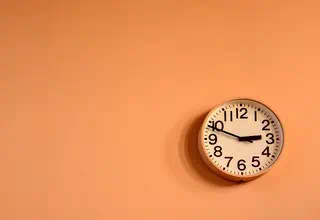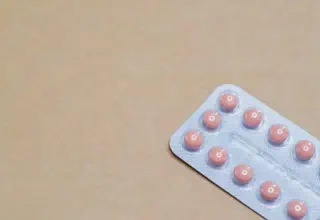Does Your Chronotype Affect Your Ability to Lose Weight?

Are you a morning person or an evening person? And could that affect your ability to lose weight?
In episode ten of my podcast and YouTube video, I look at chronotype, which is your individual disposition to be awake or asleep at certain times. And how that might affect your overall health and metabolism.
🌓
Inositol for Mood, Sleep, and PCOS (Polycystic Ovary Syndrome)

The supplement inositol is a superstar for treating polycystic ovary syndrome. It’s also been clinically trialled for weight loss, thyroid disease, anxiety, insomnia, and premenstrual mood symptoms.
In episode nine of my podcast/YouTube video, I look at “what is inositol?”, how you can get it from diet, the difference between myo-inositol and D-chiro-inositol, and why it’s all a little confusing.
If You’re Not Thinking About Ovulation, You’re Not Thinking About Health

This is my open letter to every clinician, personal trainer, and blogger who offers health advice without thinking about the importance of ovulation and natural ovulatory menstrual cycles.
Dear Sir,
Your restrictive dietary advice may cause young women to stop ovulating which is a problem because ovulation is how women make hormones.
That makes ovulation an essential part of human physiology and not just for making babies. Ovulation is not optional. Thank you.
Help for Post-Pill Acne, Hair Loss, and Weight Gain

What do post-pill acne, hair loss, and weight gain all have in common? They can all be the result of a temporary surge in androgens when trying to come off certain types of hormonal birth control.
In episode eight of my podcast/YouTube video, I discuss post-pill androgen symptoms including why pills like Yasmin are the hardest to come off, how androgens can cause weight gain, and natural treatments such as zinc, berberine, and cyclic progesterone therapy.
How Wheat or Gluten Affects Periods

For women with gluten sensitivity (celiac disease or non-celiac gluten sensitivity), even trace amounts of gluten can drive or worsen endometriosis, adenomyosis, amenorrhea, migraines, and thyroid disease.
For women with FODMAP sensitivity (as opposed to gluten sensitivity), a full serving of wheat or other FODMAP food can cause digestive bloating and potentially worsen premenstrual mood symptoms and polycystic ovary syndrome (PCOS). Small amounts of wheat are usually fine.
A Safer Type of Hormone Therapy

If you’re going to take hormone therapy, it’s safer to take hormones that are identical to human hormones. In other words, hormones that are body-identical or bioidentical. The concept of bioidentical used to be controversial but is now conventional and mainstream.
In episode five of my podcast/YouTube video, I discuss hormone therapy, including why the concept of bioidentical was controversial when it didn’t need to be; oral micronized progesterone for heavy periods, mood, sleep, and perimenopausal migraines; and some quick facts about body-identical estrogen.